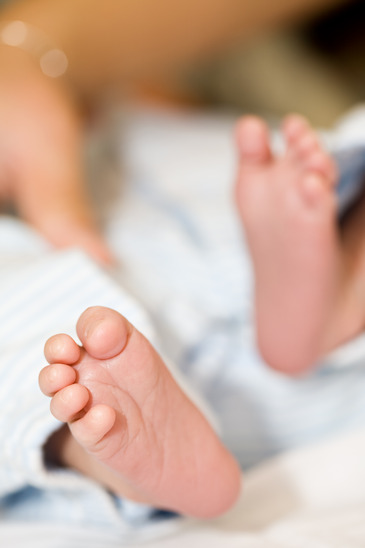About eight to ten percent of men and women suffer from infertility, a medical condition that can usually be treated with the right diagnosis.
Tag: infertility
Infertility Awareness Week Puts Emphasis On Education
About eight to ten percent of men and women suffer from infertility, a medical condition that can usually be treated with the right diagnosis.
Infertility Awareness Week Puts Emphasis On Education
About eight to ten percent of men and women suffer from infertility, a medical condition that can usually be treated with the right diagnosis.
The Best Questions to Ask Before Going Through IVF
Infertility affects millions of people every year. Turning to in vitro fertilization (IVF) could give you the family you want – but the process can be confusing.
Health Costs Will Never Be Contained
Should health insurers be legally required to offer infertility treatment for gay couples? Yes, according to a bill (AB 460) filed in the California legislature by assemblyman Tom Ammiano (D-San Francisco). In fact, refusing to do so should be a crime.
Protein Study in Oklahoma May Help Treat Infertility
A protein vital to proper cell division could be used to create new tests and treatments for infertility, according to scientists at the Oklahoma Medical Research Foundation.
Another Painful Period…Or A Problem? Understanding Endometriosis
 For some women, painful periods are a part of life. But many women experiencing painful periods do not know their pain is signaling a larger health issue.
For some women, painful periods are a part of life. But many women experiencing painful periods do not know their pain is signaling a larger health issue.
Approximately 176 million women and girls worldwide are diagnosed with the chronic disease endometriosis. Many women do not know they have endometriosis because some can only be diagnosed through surgery.
In honor of National Endometriosis Awareness Month this March, we are seeking to empower and educate women on this disease.
The cause of endometriosis remains unknown, and a permanent cure may be difficult. Building awareness of this disease is critical in aiding effective diagnoses, pain management and infertility treatment for women.
What is endometriosis?
Every month during menstruation, a woman sheds the endometrial lining in her uterus. When the endometrium tissue normally found in the uterus grows outside the uterus or in other places of the body, it is known as endometriosis.
Each month, endometrial tissue continues to break down and shed as it would during a normal menstrual cycle. Endometrial tissue in other parts of the body follows the same pattern, causing period-like symptoms such as cramps and discomfort. Without the ability to drain through the uterus as it would during menstruation, the endometrial tissue is released into the body, causing pain, inflammation, and scar tissue. Read full article.
Long Quest for Pregnancy Ups Neuro Risk for Child
The more years spent trying to achieve pregnancy, the greater the risk of conceiving a child with neurological dysfunction,researchers found.
The time to pregnancy — used as a proxy for the severity of subfertility — was significantly longer for children who had minor neurological dysfunction compared with those with intact neurological function (median 4.1 versus 2.8 years, P=0.014), according to Mijna Hadders-Algra, MD, PhD, of the University Medical Center Groningen in the Netherlands, and colleagues.
The difference remained significant after adjustment for gestational age, parental age, and parental education (OR 1.30, 95% CI 1.05 to 1.61) and largely reflected deficits in posture and muscle tone, the researchers reported online in the Fetal & Neonatal Edition of Archives of Disease in Childhood.
“This implies that factors associated with subfertility may play a role in the genesis of neurodevelopmental problems,” they wrote. “Further exploration of the associations between subfertility and health outcome in offspring is necessary for the correct counseling of subfertile couples.” Read full article.
Why it’s important not to stress over infertility
 TAMPA (FOX 13) – Many families want to add a baby to the family, but conceiving isn’t always the easiest thing to do. The CDC estimates almost seven million women have difficulty, and it’s an emotional and heartbreaking problem.
TAMPA (FOX 13) – Many families want to add a baby to the family, but conceiving isn’t always the easiest thing to do. The CDC estimates almost seven million women have difficulty, and it’s an emotional and heartbreaking problem.
For eight years, Karen Kelly tried having a baby with her husband, but was unsuccessful. Karen visited doctors, explored in vitro, and considered adoption. She says the experience was stressful.
“You start out that marriage saying, ‘We’ll do it when we are ready’ and you think it’s going to naturally happen, then conception came, for us, an ordeal,” explained Karen. “It’s a huge issue that required medical intervention, and medical analysis to figure out what was wrong.”
Karen’s journey pointed her to a familiar face. Retired WTVT anchor Kathy Fountain now counsels women like Karen, and helps couples overcome infertility.
“The ability to conceive is such a primal instinct,” Fountain explained. “Not having a baby when you want to can cause stress and anxiety. Studies have shown infertility can cause depression, just as a woman with heart disease, AIDS, or cancer, which are the most stressful things you can go through.” Read full article.
Pregnant in Medical School
Soon after starting medical school, my periods had stopped. Further evaluation led to a diagnosis of hypothalamic amenorrhea, a form of infertility in which insufficient hormones for ovulation are produced. I had always thought of having children, but years down the road, in my 30s, with an established career. At that time I was 27, going to school more than 300 miles away from my husband. Starting a family was not at the top of my mind.